#now there are nuances with all this. like mora if given the chance to help with creation despite the fact it literally couldn't
Explore tagged Tumblr posts
Text
Mora, the original draft of the reality. The original backbone of which all creation was supposed to be built upon, the original book that was meant to be written with everything that would exist. Every piece of knowledge, every fate, every existence upon it and within it.
Mora, tested far enough that time had begun to dig its talons in. The first crawls of the clock, the turning of the cycles and the beginnings of change.
Mora, left not but a pile of what was decidedly unfit while stripped of the pieces that had use within the final design. The tossed out pieces of creation left to rot forgotten within morass of the void within the tattered husk of primordial ooze of what failed to prosper.
Mora, failed ideas cursed with sentience perhaps due to how far they were allowed to run before severed. Only aware of what it was, the pieces that built it, and not what was removed. The extent of the what almost was. No opportunity to chose to give or keep, for it was what was denied existence from the final product.
Mora, born hungry for all that was removed from it. All the knowledge, memories, fates whose first breaths had been within it. Born blind to itself, whom cannot be read through the lens of what exists for it is that which exists outside of that. Born to merely observe but never truly interact with what stemmed from itself, separate of itself; born with a need that will never be satisfied.
Mora, the nothingness that was once everything.
#THE PRINCE OF KNOWLEDGE. files#( yknow no I will talk about my new ideas for mora and cry about it a bit actually#mora as the original draft is actually super painful the more I think about it#now there are nuances with all this. like mora if given the chance to help with creation despite the fact it literally couldn't#idk if it would have cause Power and doesn't wanna cheat itself of that but#yes I have been rping mora too long and begun to overcomplicate it / make it tragic but yknow what#this one isnt necessarily my fault I saw a joke post that became very much not to me )
13 notes
·
View notes
Link
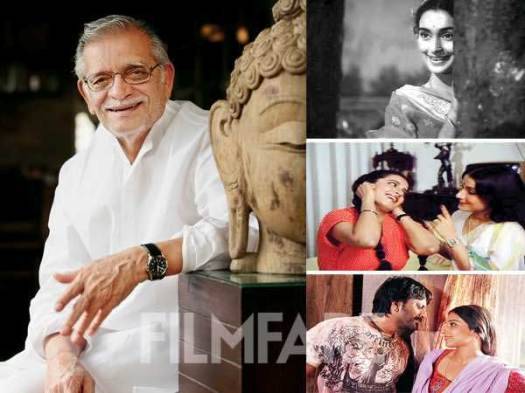
Gulzar is a keen observer of life. He has the ability to take every day pains and gains and turn them into something sublime, something ethereal. He has made us laugh at life’s foibles, life’s ironies and accept them. Also, his poetry offers us a chance for catharsis and we move on as better versions of ourselves. He has been writing since the early ’60s and shows no sign of slowing down. One thing that has contributed to his longevity as a lyricist is his ability to move with the times. He can take Mirza Ghalib’s Ji dhoondta hai, phir wahi fursat ke raat din and expand it to fit the need and mood of a film (Mausam) or hint at the randomness of life in Tujhse naraaz nahi zindagi (Masoom), and do a complete raunchy number like Beedi jalaile (Omkara).
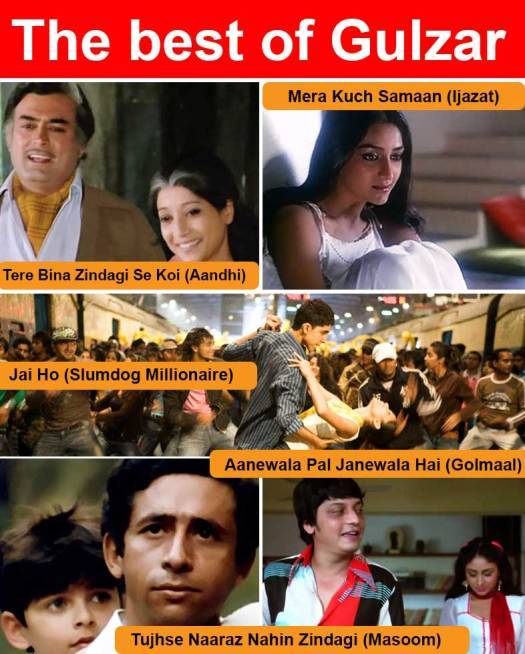
He maintains a certain tehzeeb, a certain gravitas in his language. And yet, his songs don’t brim over with ornate Urdu but remain rooted in the everyday lingo of the milieu. That makes him truly a people’s poet. He’s exhaustively covered myriad moods and situations down the years but every song sounds unique. Almost everyone has got a Gulzar playlist and here is ours. Read on to know more…
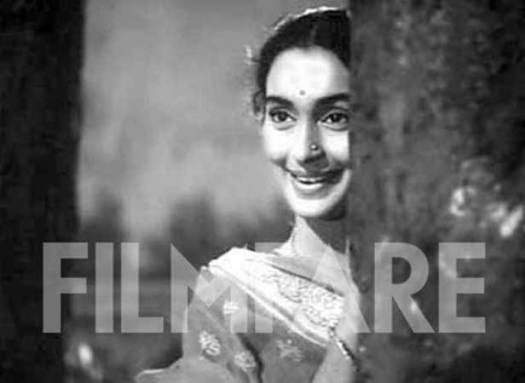
Mora gora rang layi le (Bandini 1963) Singer: Lata Mangeshkar | Music: SD Burman
This is believed to be the first song conceptualised by Gulzar. The song has overtones of Vaishnavi poetry on one hand and an undercurrent of a young woman’s sexual awakening on the other. It takes genius to merge these two divergent themes. Gulzar showed his range in his first offering itself. The film’s lyricist was Shailendra. Gulzar was brought in for this song because Dada Burman had a tiff with the writer. He was given a high octave… la la la la tune by Dada Burman and to that RD Burman added the low octave… da da da da and between the two strains Gulzar was inspired to come up with subliminal lyrics.
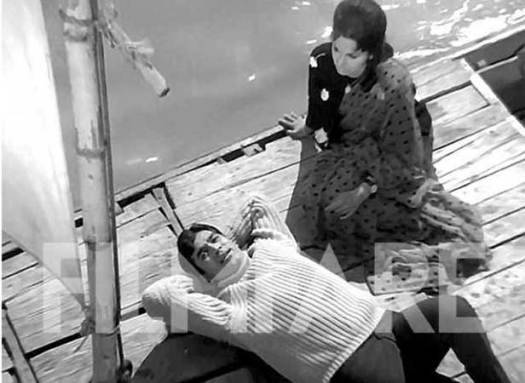
Woh shaam kuch ajeeb thi (Khamoshi 1970) Singer: Kishore Kumar | Music: Hemant Kumar
Only Gulzar can write a song, which moves back and forth between the past and the present. The antara has the lines, Jhuki hui nigaahon mein, kahin mera khayaal tha – because the protagonist is thinking about a past life, a past love. The mood then cuts to the present, where he says, Mera khayaal hai abhi jhuki hui nigaah mein…. What Gulzar is describing is a similar emotion that links the then and the now.
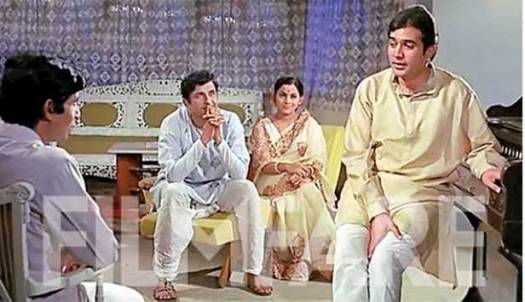
Maine tere liye hi saath rang ke sapne chune (Anand 1971) Singer: Mukesh Music: Salil Chowdhury
Anand drove home the point that life should be counted by the experiences and not the years. Maine tere liye hi saat rang ke sapne chune is an ode to love and its recollection. The protagonist is reminiscing about his past love and is revived by the joy the memory brings. While the words are nostalgic, the sprightly tune gives it a very cheerful vibe.
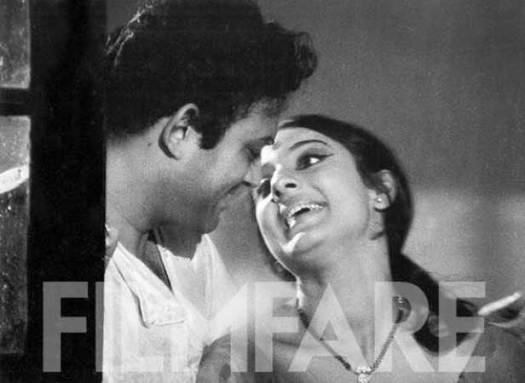
Mujhe jaan na kaho meri jaan (Anubhav 1971) Singer: Geeta Dutt | Music: Kanu Roy
This was one of the last songs sung by Geeta Dutt. Gulzar is one of those lyricists who has a soft corner for married couples. He has written brilliant poetry revolving around them. The song was picturised on Tanuja and Sanjeev Kumar, an earthy pair. It speaks of the intimacy between a husband and wife Honth jhukein jab hothon par, saans uljhi ho saanson mein / Do judwa hothon ki, baat kaho aankhon se… Gulzar brings home the sensuality with delicate imagery.
Koi hota jisko apna (Mere Apne 1971) Singer: Kishore Kumar Music: Salil Chowdhury
We all yearn for that someone special – someone who means more to you than yourself. Gulzar caught that feeling in this paean to the perfect soulmate. Kishore Kumar got the emotions bang on. It was filmed on macho star Vinod Khanna and the impact is doubled when you see this tough guy going sentimental. Gulzar directed the film and hence the picturisation is poetic too.
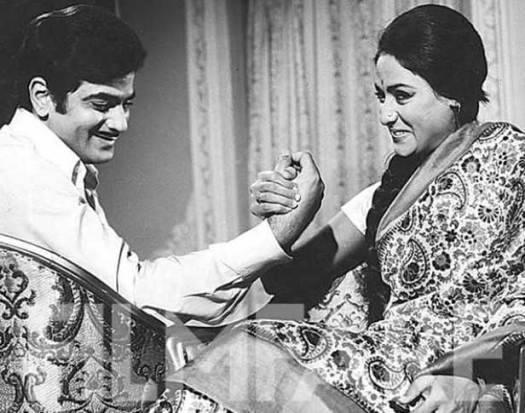
Musafir hoon yaaron (Parichay 1972) Singer: Kishore Kumar | Music: RD Burman
Story goes that RD Burman landed up at Gulzar’s home at 1 am to make him hear this particular tune. Both of them sat listening to the tunes till the wee hours and a life-long friendship was forged. The short and sweet song tells that we are nothing but travellers in life’s journey and that we have no choice but to just follow the road heedless of where it leads.
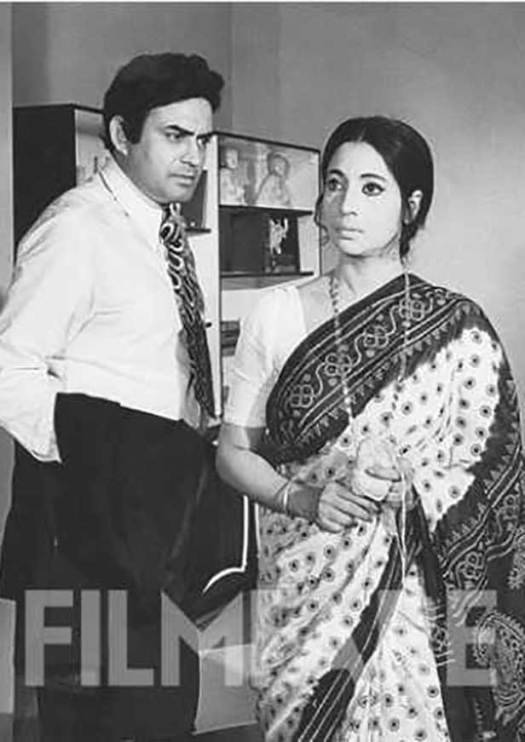
Tere bina zindagi se koi (Aandhi 1975) Singers: Kishore Kumar and Lata Mangeshkar | Music: RD Burman
The film, directed by Gulzar, revolved around a politician who’s estranged from her husband. They meet one day after years and feelings rekindle. Gulzar had to write about lost love and time. According to film lore, Gulzar heard Pancham rehearsing a song for a Pujo album, Jete jete pathe holo deri and the tune kept playing on loop in his mind. He felt it was apt for the situation. The song is intercepted with dialogue and RD, apparently, didn’t like his song being so disturbed.
Kabhi kabhi sapna lagta hai (Ratandeep 1979) Singers: Kishore Kumar-Asha Bhosle Music: RD Burman
Basu Chatterjee’s Ratandeep revolved around a man masquerading as his dead lookalike.He develops a conscience when it comes to having marital relations with the wife of the dead man. He develops feelings for her and the song describes his inner turmoil. He wants to confess but is afraid of losing it all.
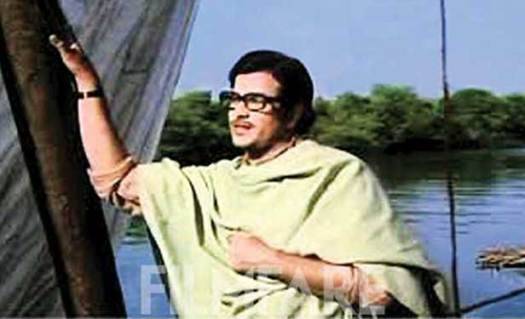
O manjhi re (Khusboo 1975) Singer: Kishore Kumar | Music: RD Burman
This is easily one of the best renditions by Kishore Kumar. Khushboo was Gulzar’s yet another directorial after Mausam and Aandhi. RD Burman used the Bengali folk form Bhatiali to compose this. It speaks about the voyage of life, the tide of time and the search for the proverbial shore. The words aptly bring out the pain internalised by the protagonist, played by Jeetendra. It’s said that those present at the recording had trouble keeping their eyes dry.
Dil dhoondhta hai (Mausam 1975) Singers: Kishore Kumar and Lata Mangeshkar Music: Madan Mohan
Jee dhoondta hai fir wohee fursat ke raat din/ baithe rahe tasavvur-e-jaana kiye hue goes a famous Mirza Ghalib couplet. Gulzar changed jee to dil on Madan Mohan’s insistence. The situation revolved around a man returning to the place where he had first fallen in love with scenes of the past cutting into present. There is a sad and soulful version sung by Bhupinder too.
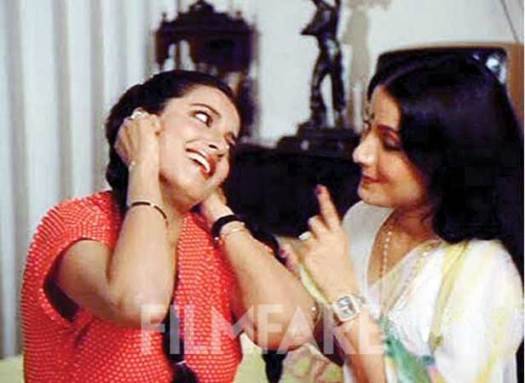
Sun sun didi tere liye ek rishta aaya hai (Khoobsurat 1980) Singer: Asha Bhosle | Music: RD Burman
Here, Gulzar has grasped the affectionate nuances between sisters. In a traditional Indian home, younger sisters are known to be enthused when a prospective groom comes calling for their didi (older sister). This fun-filled and teasing equation is captured in this song. One remembers one more such Gulzar song, Ek baat suni hai chachaji, sung by Sushma Shreshta and Shatrughan Sinha, from Naram Garam (1981), where the niece is happy that her uncle is getting married.
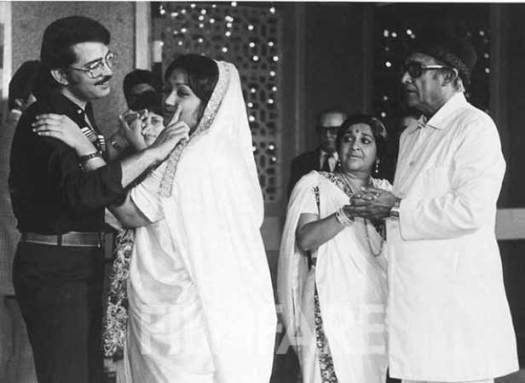
Thoda hai thode ki Zaroorat hai (Khatta Meetha 1981) Singers: Kishore Kumar, Lata Mangeshkar | Music: Rajesh Roshan
Gulzar brought forth the conundrum – that man would always crave for more no matter what – in this bittersweet song that celebrates life. The film, a reworking of Hollywood comedy Yours, Mine And Ours (1968), cast Ashok Kumar and Pearl Padamsee as a Parsi widower and widow respectively who get married and home in with their respective children. The song beautifully encapsulated that maxim ‘want not, need not’.
Do naina ek kahani (Masoom 1983) Singer: Aarti Mukherjee Music: RD Burman
A mother is singing a lullaby to her daughters as another child – her stepson – silently watches from the shadows. The visual and the words both are haunting. The stepchild was born out of wedlock through her husband’s association with another woman. The woman voices her sorrow, her unspoken anguish through the song.
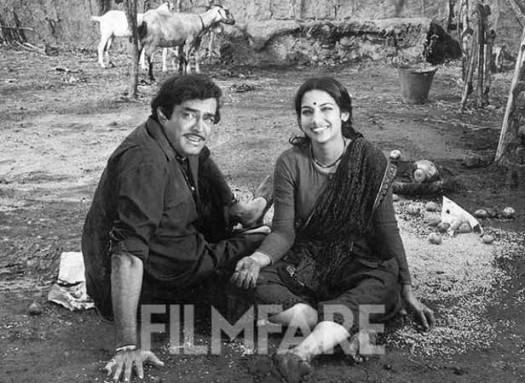
Raah mein rehte hain (Namkeen 1982) Singer: Kishore Kumar | Music: RD Burman
Gulzar is no less a life coach. Raah mein rehte hain is one such lyric that reveals this skill. It may be a song about a truck driver but it urges you not to hold regrets and move on. Gulzar has often been inspired by great poets. The line, Khush raho ahle watan, hum to safar karte hain is inspired by Nawab Wajid Ali Shah’s couplet, Dar-o-deewar pe hasrat se nazar karte hain/ Khush raho ahle-watan hum to safar karte hain.
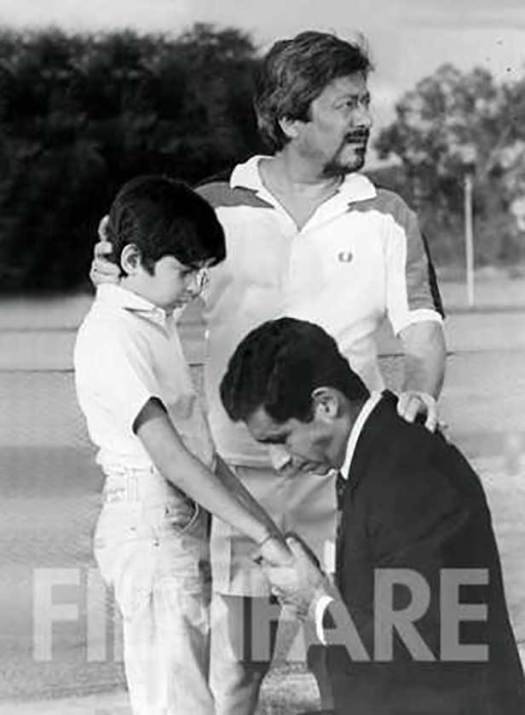
Tujhse naraz nahi zindagi (Masoom 1983) Singers: Lata Mangeshkar (female version), Anup Ghoshal (male version) | Music: RD Burman
Life has a way of throwing curveballs at you. Though not angry, it leaves you bamboozled. And you can’t help smiling at the joke played on you. After all, life extracts a price for every pleasure thrown your way. These feelings are poignantly captured by Gulzar in what can be said to be his best philosophical song of all time.
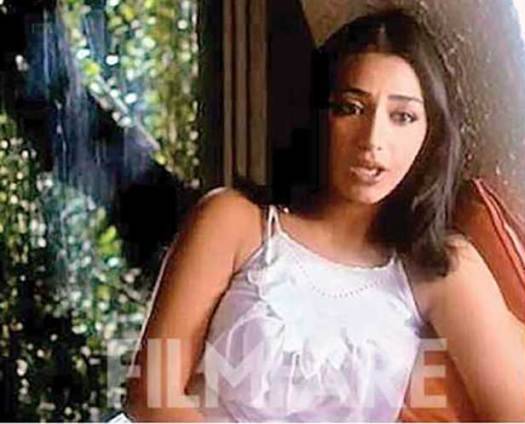
Mera kuch saaman (Ijazat 1987) Singer: Asha Bhosle Music: RD Burman
When Gulzar wrote these lyrics, an amused RD Burman remarked that given the free verse, the poet would next give him the front page of The Times Of India to compose. Asha Bhosle poured her soul in Mera woh saman lauta do. It conveyed the thought that while you may return the tangible things to your ex-love, what about the intangible memories?
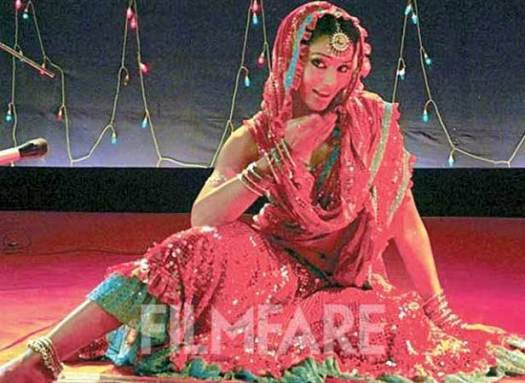
Beedi jalaile (Omkara 2006) Singers: Sukhwinder Singh, Sunidhi Chauhan Music: Vishal Bhardwaj
Who would have thought that Gulzar could come up with this raunchy rustic song at 70 plus? But such is his youthfulness, his versatility that he manages to sound like a 20-year old, passionately in love. Gone are all platonic allusions, which he’s famous for. This is pure ‘come hither and take me’ invocation but at the same time devoid of vulgarity. Such is Gulzar’s range that the song cuts across all ages from seven to 70.
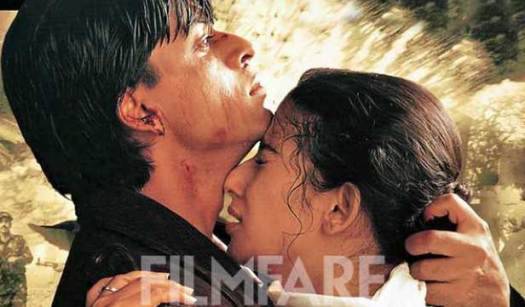
Ae ajnabi tu bhi kabhi (Dil Se 1998) SingerS: Udit Narayan, Mahalaxmi Iyer | Music: AR Rahman
All life’s a search for completion, a belief that you will meet that elusive stranger who shares the other half of your soul. Gulzar makes a case for this feeling in this song. Main yahan tukdon mein jee raha hoon/ Tu kahin tukdone mein jee rahi hai… I carry bits of my broken soul and so do you… Udit Narayan never sounded so soulful and in AR Rahman, Gulzar found another Pancham of sorts…
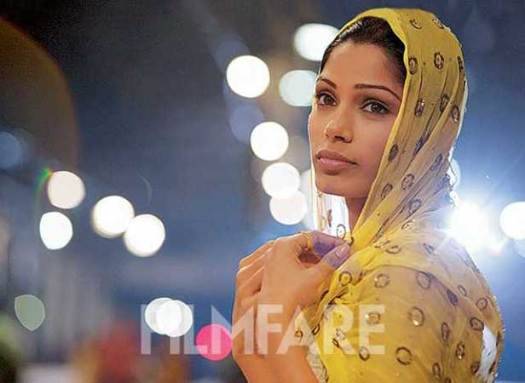
Jai ho (Slumdog Millionaire 2008) Singers: Sukhwinder Singh, Vijay Prakash, Tanvi Shah and Mahalaxmi Iyer Music: AR Rahman
This is the song that won us the Oscar. It was also featured as a cover version by the American all-girl band The Pussycat Dolls. Ironically, the song was part of Subhash Ghai’s Yuvvraj, who rejected it as he felt it didn’t fit the story. Thank God for life’s little surprises, otherwise we would have been bereft of the Oscar. It speaks of keeping hope alive even in the midst of adversity and celebrates life in all its fullness – just like the maestro who wrote it.
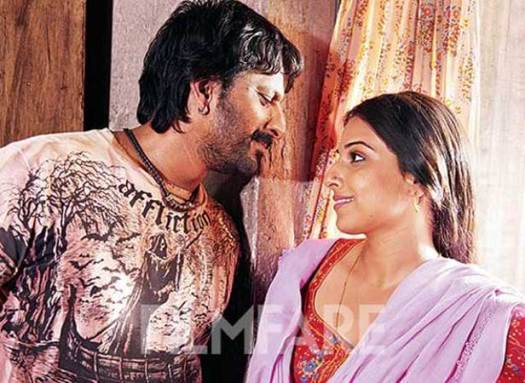
Dil toh baccha hai ji (Ishqiya 2010) Singer: Rahat Fateh Ali Khan Music: Vishal Bhardwaj
Dil toh baccha hai ji – the heart is like a child, says Gulzar, and well it should be if one has to live and love to the fullest. And because the heart’s child-like, love can strike at any time, unmindful of time’s vagaries. Gulzar is one of our most child-like poets – full of curiosity and wonder. A combination of all these factors gave birth to this ageless song of love. Rahat Fateh Ali Khan’s ace rendition and Vishal Bhardwaj’s folksy score made the song stand out. And Naseeruddin Shah’s grey strands proved that love has no season or reason.
The post The best of Gulzar appeared first on Lazy Updates.
1 note
·
View note